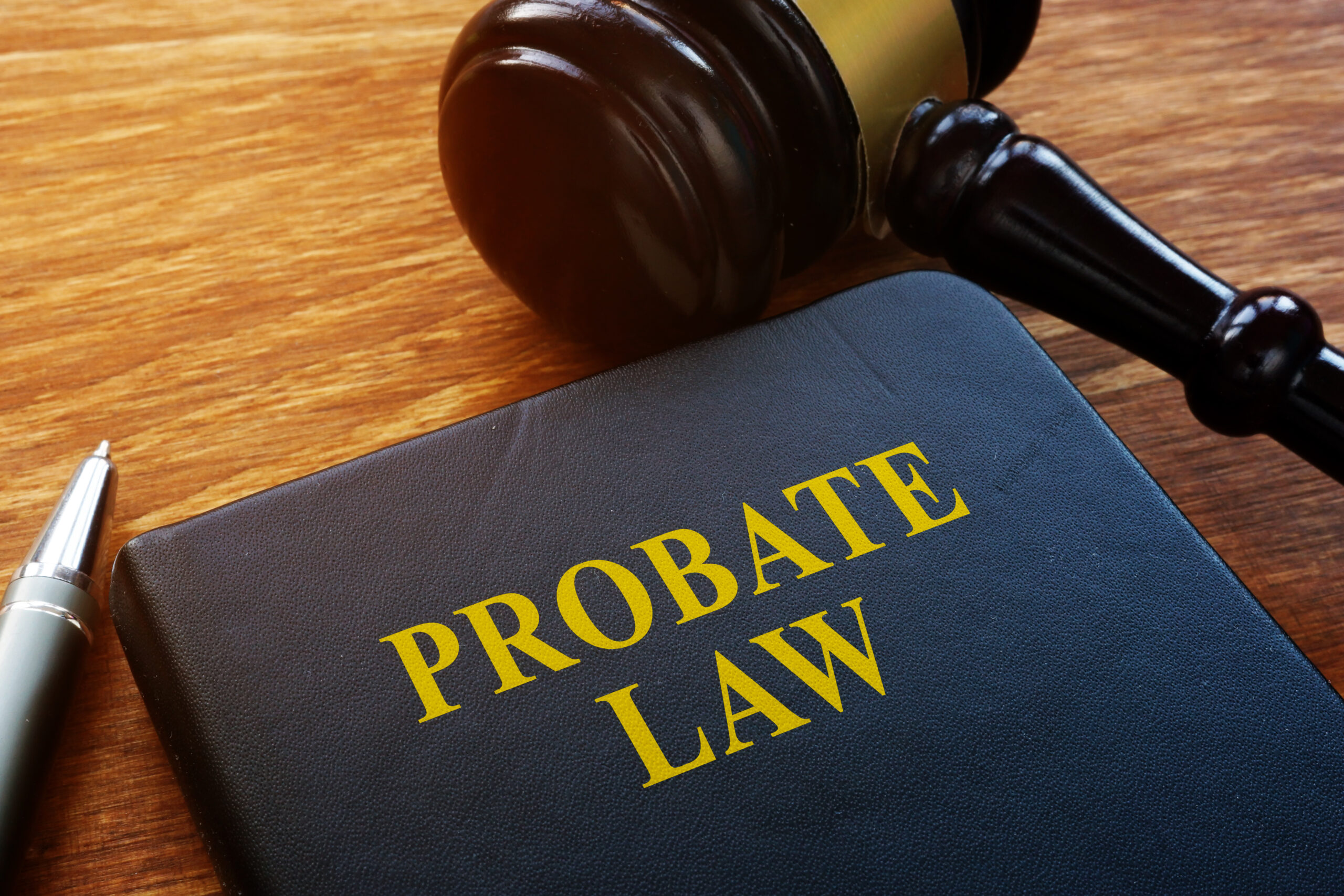A Comprehensive Guide to HDB Inheritance Rules in Singapore
Inheriting a Housing and Development Board (HDB) flat can be complicated and confusing. Many factors influence the process. To ensure a smooth process for inheriting a HDB flat, it is crucial to understand the rules around wills and probate.
Another scenario to consider is when you are the co-owner of an HDB flat, and the other owner passes away. You need to understand HDB inheritance rules and the implications on your ownership to organise and protect your affairs.
Bear in mind that government policies may change and it is always best to refer to the HDB’s website for the latest policies.
Eligibility Conditions for Proposed Flat Owners
The following is an extract from the HDB website containing the latest eligibility conditions as of May 2023. Proposed flat owners must meet these criteria before taking over ownership of an HDB flat.
- Reason for Change: A change in the existing family structure (e.g., divorce, marriage, or demise of an owner).
- Relationship: Proposed owners must be an immediate family member (e.g., spouse, parents, children, or siblings) of the current owners.
- Eligibility Scheme: The proposed owners must be able to take over ownership under one of the existing eligibility schemes.
- Age: Proposed owners must be at least 21 years old.
- Citizenship: Proposed owners can be a Singapore Citizen (SC) or a Singapore Permanent Resident (SPR). If all proposed owners are SPRs, they and the essential occupiers must have held permanent residency for at least 3 years.
- Other Property Ownership: The proposed owners must not be a current owner or essential occupier of another HDB flat, DBSS flat, or an Executive Condominium (EC) unit (within its 5-year Minimum Occupation Period).
Religion and HDB Inheritance
Religion may affect the inheritance of HDB flats, with different laws for Muslims and non-Muslims.
If the deceased is Muslim:
- No will: The flat will be dealt with under Syariah Law (Faraid).
- With a will: The owner can only bequeath 1/3rd of the property. The court will distribute the remaining 2/3rd of the interest in the flat according to Faraid.
If the deceased is non-Muslim:
- No will: Ownership is dealt with under the Intestate Succession Act. A relative or beneficiary can approach the court to be appointed as a trustee.
- With a will: The will must be proved and executed under probate. The appointed executor will oversee the process following the Probate and Administration Act.
Types of Ownership and HDB Inheritance
It’s essential to establish if a flat is owned under a joint tenancy or tenancy-in-common. This is always subject to HDB’s prevailing conditions for taking over ownership.
Joint Tenancy:
- All co-owners have an equal share in the flat.
- If one co-owner passes away, their interest is automatically passed to the remaining eligible owners.
- This will override a will, so the will is not a factor.
Tenancy-in-Common:
- Each owner has a separate interest in the HDB flat.
- If an owner passes away, their share is transferred based on inheritance laws; it will not automatically transfer to the remaining owners.
- If there is a will, it will be distributed to the beneficiaries set out in the will. If there is no will, the Intestate Succession Act will apply.
The Process of HDB Inheritance
Here is a brief overview of the process of HDB inheritance. We always recommend engaging a lawyer to ensure compliance.
For a Joint Tenancy:
- The remaining owner must lodge a Notice of Death with the Singapore Land Authority (SLA).
- This can be done with the help of HDB or directly at the SLA.
- The remaining owner must include all required documents, including the Death Certificate.
For a Tenancy-in-Common:
- The deceased’s family should approach a lawyer to obtain a Grant of Probate (if there is a will) or a Grant of Letters of Administration (if there is no will).
- After obtaining legal authority from the court, the executor or administrator must register their legal right to manage the estate.
Common Issues with HDB Inheritance
If all legal requirements are met, the inheritance process should proceed smoothly. However, several issues can arise:
Beneficial vs. Legal Ownership: The person paying the mortgage is sometimes not the legal owner on paper. This can complicate matters and require proving payments to protect their interest.
Family Conflict: Inheritance may cause a lot of conflict amongst surviving family members or co-owners.
Lack of a Will: Without a valid will, your interest in the HDB flat might end up with a person who is not your first choice, as inheritance will be determined by law.
If you own an HDB flat and have specific wishes, it is essential to draw up a will and consult with a lawyer knowledgeable about inheritance law.
Start With a Free, No-Obligation Consultation
We offer a free, no-obligation consultation to answer your questions, assess your needs, and provide clear, personalised advice. Our lawyers will explain your options and outline your costs upfront, helping you take the next step with confidence.
Contact us today:
Tel: +65 6854 5336
Whatapp: +65 9090 3158
Email: enquiry@pkwalaw.com
$1,590
For estates below $500k, no property, no minor beneficiaries
$2,590
For estates below $3 million
Frequently asked questions
v4 1
Can a minor inherit a HDB flat?
Yes, a minor can inherit a HDB flat under the deceased’s final will or under section 7 of the Intestate Succession Act if there is no will. While a minor has the capacity to hold land, a minor or child under 21 years old does not have the legal capacity to contract in any Sale and Purchase of any land (see section 35(4)(a) of the Civil Law Act). As such, the surviving parent or guardian named in the will may manage the minor’s inheritance until the child turns 21 years old. The HDB flat (or the minor beneficiary’s share in the sale proceeds) may also be held on trust by the Executors or Administrators of the deceased’s estate.
Can I inherit my parents' HDB flat?
Many factors influence the process of inheriting a Housing and Development Board (HDB) flat.
If one parent predeceases the other
For a start, what lay at the heart of the matter is the manner of holding for the flat:
- If both parents are registered as joint tenants in the title of their HDB flat, the surviving parent will become the sole absolute owner of the flat upon the death of the other. In other words, the right of survivorship prevails and your deceased parent cannot bequeath the HDB flat to you through a will.
- If your non-Muslim deceased parent is the sole owner of the HDB flat, you can inherit the flat (or part thereof) if you are named as a beneficiary in the deceased’s final will. If there is no will, the surviving spouse shall be entitled to one-half of the deceased’s HDB flat and other assets (in accordance with section 7, rule 2 of the Intestate Succession Act) and the other one-half shall be distributed equally to and among the children (in accordance with section 7, rule 3 of the Intestate Succession Act).
If both parents pass away
If both parents die in a common accident or a catastrophic event, you can inherit your parents’ interest in their HDB flat under a valid will or under section 7 of the Intestate Succession Act if there is no will. As a person can only own an interest in one HDB flat at a time, you will have to sell your interest in 1 of the 2 flats if you already own another HDB flat (regardless partial or sole ownership). For Muslim estate, the HDB flat and other assets will be distributed according to faraid (Muslim law) and more on this will be elaborated further below.
What happens to a HDB flat when it's owner passes away?
Much depends on whether the HDB flat has other owners and whether the deceased had executed a valid will. Aside from sole ownership, there are 2 types of co-ownership and they are joint tenancy and tenancy-in-common. Under tenancy-in-common, each co-owner holds a separate and distinct interest in the HDB flat. Section 53(1) of the Land Titles Act provides the presumption that registered co-owners hold the property as joint tenants, unless there are words of creation or severance indicating tenancy-in-common.
Joint tenancy
The consequence of joint tenancy is the right of survivorship. Under section 114 of the Land Titles Act, when one joint tenant dies, the surviving joint tenant takes the entire estate. In other words, the deceased’s interest in the HDB flat will simply cease to exist upon his or her death and devolves to the other joint tenant without the need for a will. The right of survivorship prevails over succession laws and extends to Muslim estate (see Shafeeg bin Salim Talib [2010] SGCA 11 at paragraphs [43] to [44]). Consequently, the deceased cannot will his or her share in the HDB flat to other beneficiary.
Sole ownership or Tenancy-in-common
- If the deceased dies as a non-Muslim and without a will, the Intestate Succession Act (ISA) applies and the deceased’s assets (including his or her share in the HDB flat) will be distributed according to the priority stated in section 7 of the ISA. A relative or a beneficiary can apply to the court to be appointed as an Administrator of the deceased’s estate. A Letter of Administration may be granted to the widowed spouse or the next-of-kin. If no such person applies, it may be granted to creditors such as banks.
- If the deceased dies as a non-Muslim and with a valid will, the deceased’s HDB flat and other assets will be distributed according to the final will. At least one Executor must be appointed in the deceased’s will, failing which an application for the grant of a Letter of Administration (with the will annexed) must be taken out.
- If the deceased dies as a Muslim, the Intestate Succession Act will not apply (see section 2 of ISA). The deceased’s HDB flat and other assets will be distributed according to faraid (Muslim law) in line with section 112 of the Administration of Muslim Law Act (AMLA). Even if there is a valid will, the deceased can only bequeath up to one-third of his or her share in the HDB flat. The other two-third of the deceased’s share in the HDB flat will be distributed based on the share value of his or her legal heirs, as specified in the Inheritance Certificate issued by the Syariah Court
How long does it take to sell a HDB flat after a death?
Joint tenancy
A surviving joint tenant will become the sole absolute owner of the HDB flat upon the other joint tenant’s death and after lodging a Notice of Death with the Singapore Land Authority (SLA). The surviving joint tenant may then sell the HDB flat anytime on the open market if he or she wishes to, subject to the Minimum Occupation Period (MOP) and other requirements stipulated by HDB that may have to be met before the flat can be sold off.
Valid will
For other manners of holding, if there is a valid will, the HDB flat will automatically vest in the Executor named in the deceased’s will and the Executor’s powers are derived from the will (see Lee Han Tiong v Tay Yok Swee [1996] SGHC 176 at paragraph [5]). However, the Executor must still apply for and obtain a Grant of Probate from the court to deal with the deceased’s estate to fruition (see Re Ong Soon Chuan [1999] SGHC 125 at paragraph [5]) and the process may take time.
No will
If there is no will, sections 37(1) and 37(4) of the Probate and Administration Act (PAA) provide that the deceased’s real and personal estate (including the HDB flat) will vest in the Public Trustee between the death and the grant of a Letter of Administration. Applying for a Grant of Letter of Administration is lengthier and more complicated than applying for a Grant of Probate.
Much will also depend on whether there is a caveat lodged against the HDB flat under section 33 of the Probate and Administration Act. A caveat will only be lifted if the creditors and/or beneficial owners are satisfied with the undertaking from the Administrator or Executor (as the case may be) to settle the estate debts and liabilities. Until then, the court will not issue the Grant of Letter of Administration or Grant of Probate. This means the HDB flat cannot be sold and the sale proceeds cannot be distributed to the beneficiaries until the issue in dispute has been settled. This may take a longer time if the contentious probate is referred to the courts for resolution.
The need to get your estate planning right from the start before your death, as well as the need to ensure compliance with all the inheritance processes when a loved one passes away make it all the more important to engage a specialist lawyer.


